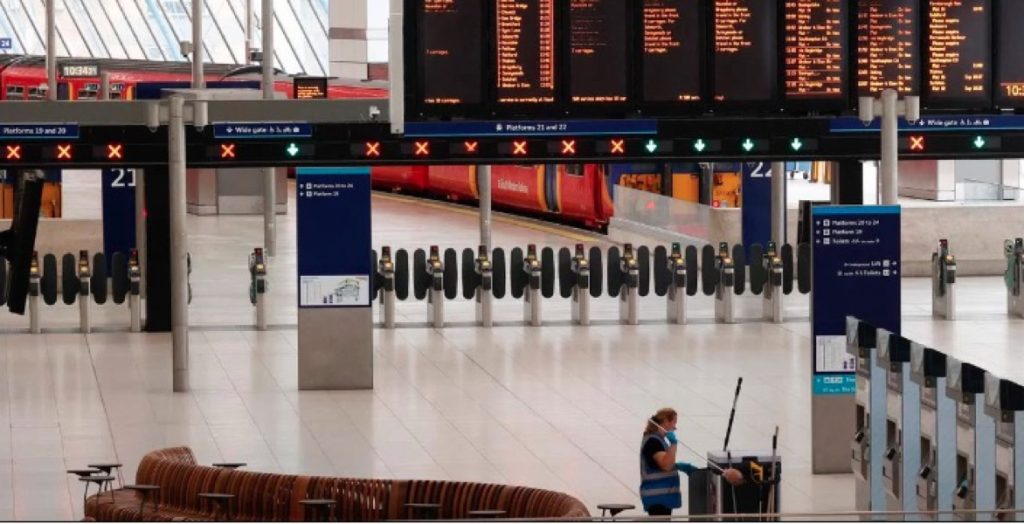The strike affected rail services in England, Scotland and Wales. (Carlos Jasso/AFP-CP)
Most rail services in the UK were suspended on Saturday after rail workers staged another series of strikes for pay rises to keep pace with inflation above 10% and better working conditions. Record inflation is driven by increased energy from sanctions against Russia imposed by Washington and supported by European governments.
More than 40,000 workers, including cleaners, signalmen, maintenance and station staff, participated in the 24-hour strike.
Over the summer, protests multiplied. Air and sea transport, Amazon, call centres, criminal lawyers and the nursing service are just some of the many initiatives Premier Liz Truss has tackled since coming to government.
This is the second railway strike this month. On 1 October, the four unions in the sector (Sindicato dos Transportes Ferroviários e Maritimos) [RMT na sigla em inglês]Unite, Aslef and TSSA) organized a protest and mobilization, but the demands put forward were not evaluated by the employers.
RMT general secretary Mick Lynch asked the government to mediate between unions and employers to negotiate a deal. The unionist warned Transport Minister Ann Marie Trevelyan in a letter: “You must let go of the railway operators who are currently taking orders directly from you.”
Dissatisfaction is growing in England. Liz Truss’s backlash revealed the scale of the crisis that required her to suspend a £7 billion tax cut for the super rich, one of her campaign promises.
The stoppage follows a metro strike organized in London on Friday (7), affecting several lines in the British capital.
The move was confirmed by the RMT [a greve] Responds to “deadlock” in negotiations with employers, so warns protests will continue.
Likewise, he criticized the British government for pressuring transport companies not to offer better working conditions to their employees, perhaps encouraging protests from other sectors of society.
“Inflation will hit 20% next year,” said Mick Lynch. “We know it is difficult for the common people, but it is impossible for the workers to call off the strikes. Meanwhile, the railway companies are making profits and have to waive the hike demands. It is not acceptable,” he said.
“Public sector wages have been stagnant since 2010, and private sector wages have fallen sharply due to rising inflation,” he pointed out.
Lynch blamed the government for the strike: “They are the ones who instigated this conflict”, proposing that inflation and the crisis facing workers “suppress jobs, reduce pensions and wages”.

“Internet evangelist. Writer. Hardcore alcoholaholic. Tv lover. Extreme reader. Coffee junkie. Falls down a lot.”






More Stories
Kamala has warned that democracy in America will be in danger if Trump wins
The world’s rarest donkey has been born at a zoo in the United Kingdom; Watch the video
Senators travel to America in search of best practices…